Top 10 brilliant hackers
Here are 10 hackers who attacked and caused the most serious consequences ever known in the history of the Internet.
Cyber war is emerging as a global challenge to the political and military economic security of every country around the world. History has recorded countless network attacks, hackers around the world are also numerous. The following 10 hackers are the most dangerous people ever known in the history of Internet development.
Kevin Mitnick (Los Angeles, USA)

Although Mitnick is not a genius of programming or system security, Mitnick has exploited a small hole to create a big event. Start by hacking the bus system of the Los Angeles bus system to take the bus for free. Next, Mitnick hacked Phreaking phone system for free to use for 2 and a half years. Not stopping there, Mitnick also broke into the computer of the US defense warning system causing serious disturbance.
Mitnick was eventually 'grabbed' by the FBI when trying to access DEC's computer system of Digital Devices Corporation to steal proprietary software.
Kevin Mitnick was sentenced to 5 years in prison for intrusion acts and network hacking. Mitnick admits that the most powerful weapon used is 'technical society', which the supposedly odd details that programmers often overlook, and focuses only on more advanced systems.
Kevin Poulsen (Los Angeles, USA)
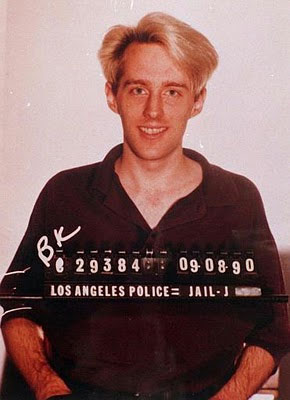
Kevin Poulsen (aka Dark Dante), is a prodigy hacker. He started his "career" at the age of 17, starting with access to the ARPANET network (*) during the formation and exploitation of a hole to take control of the entire system.
Poulsen is really famous after a spectacular trick with Los Angeles KIIS radio.
At that time the luxury Porsche car brand along with KIIS radio was holding a lucky customer competition and the prize was a luxury Porsche sport for those with a 102th call.
Poulsen successfully broke into the city's telephone network, took control of the network, blocked all calls to the radio, and controlled the number that would eventually fall into his hands.
Soon after his success, he set up a Yellow page to protect phone numbers for some acquaintances and run a virtual agency. Poulsen was arrested at a supermarket after organizing a nationwide cyberattack, Poulsen was sentenced to five years in prison, after his sentence was released he became a senior editor for Wired News specializing in writing. about security.
Robert Tappan Morris

He is the author of the first famous computer worm called 'Morris worm'.
This is a fast, automated copying program on the Internet, causing serious damage to thousands of computers around the world.
Morris became the first person to be convicted of illegal intrusion into global computer systems in 1986. Morris was sentenced to 3 years probation, 400 hours of public service, and had to pay a fine. The amount is 10,500 USD.
Adrian Lamo
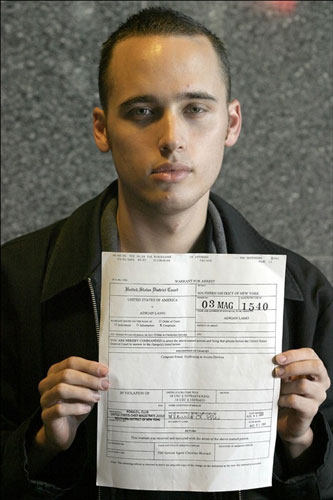
Lamo has entered the profile of well-known organizations like Microsoft and the New York Times. This action made Lamo the most famous hacker in history.
He used to overcome network security barriers of large companies, showing them the vulnerabilities in the system. Although his invasions are not for the purpose of sabotage or profiteering, they are still illegal.
Adrian Lamo is nicknamed 'homeless hacker' because he regularly infiltrates the system from cafes or libraries. A series of Yahoo !, Bank of America, Cingular and Citigroup networks were also subdued by Lamo.
However, Lamo made the mistake of infiltrating the New York Times and LexisNexis data, which contained many confidential documents. Despite informing the governing body about the vulnerability and support to overcome, that action was not paid off. Adrian Lamo was sentenced to 6 months in prison, plus 2 years of probation. Among the famous hackers, he is the most "moral" hacker.
Jonathan James
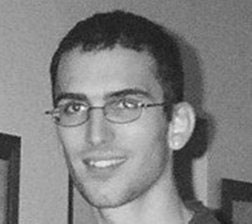
Jonathan James is also a prodigy hacker, becoming the first juvenile criminal convicted by cyber-attacks.
James's goal is to be the leading well-known organizations in the United States such as NASA and DTRA threatening mitigation agencies. He installed the virus on DTRA's server system to block personal emails and learn content, access details of dozens of senior DTRA officials.
James infiltrated NASA's system of stealing software that controlled the space station's environmental parameters such as humidity and temperature. NASA said damage from James's attacks amounted to $ 1.7 million.
Vladimir Levin (Russia)
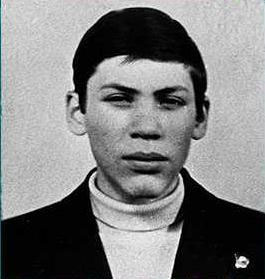
Vladimir Levin became the first criminal to perform a bank robbery without guns.
In 1995, Levin broke into Citibank's security system and took $ 10 million, then the money was transferred to various accounts in Europe and the United States. However, the burglary without the gunfire was quickly destroyed, Levin was arrested shortly thereafter in England.
Timothy Lloyd (USA)

In 1996, the American hacker launched an attack and installed six pieces of malicious code into the system of Omega Engineering, one of NASA's main suppliers.
This malicious "bomb" exploded all the software used in the production of Omega Engineering, causing heavy damage to the company. Total losses amounted to more than 10 million USD.
David Smith
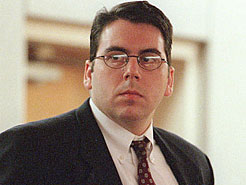
The father of Melissa's computer virus, Smith created the biggest "plague" on the Internet.
Initially, this virus was not intended to harm computers. However, after spreading on the network, the virus itself demonstrated the ability to copy itself, causing the server's traffic congestion.
Its copy version is a simple macro virus, spread through word, excel files. The third variant is very dangerous: it invades important systems and causes bad disruptions to the system. David Smith was sentenced to 20 months in prison and fined 5,000 USD.
Michael Calce
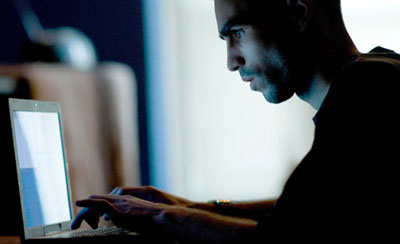
Calce is known online with the nickname 'MafiaBoy', a 15-year-old prodigy of the 'black hat hacker' group.
Calce is the mastermind of the famous DDoS attack against major carriers like Yahoo !, Amazon.com, Dell, E * TRADE, eBay, CNN on February 6 and Valentine's Day 2000.
Calce took control of 75 servers out of 52 networks, launching a large package of "bombarding" websites around the globe. Global losses amount to 1.2 billion USD.
However, because he was in his teens, he was only sentenced to 8 months of suspended prison, with one year of probation, limited use of the Internet and a negligible fine.
MOD (Masters of Deception)
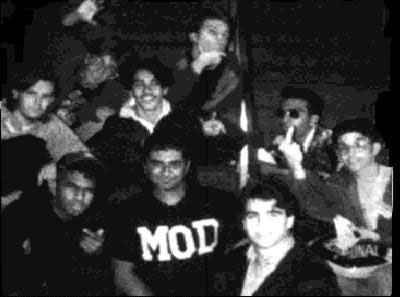
This is a group of hackers nicknamed Masters of Deception. Typical of the danger when hackers gather in groups to work together.
Since the 1980s, they have relied on NY-based cybersquad to successfully control all major telephone networks, as well as the X25 network (the backbone of the Internet at the time).
The members of the MOD team have achieved unprecedented sophistication in anonymous access. Although the group gained access to top-secret documents, this information was not disclosed due to MOD's philosophy and almost religious principles. Five members were arrested during an FBI task force campaign, and were convicted in 1992.
The above examples are just the tip of the iceberg, many hackers have demonstrated that: knowledge, ingenuity combining good social skills can lead to tragic outcomes for the Internet and users.
For years, network security has developed into a separate industry. Thousands of products prevent network attacks from occurring, significantly reducing serious attacks. However, carelessness, lack of vigilance are always a gap for hackers to exploit, and this problem never ends.
Cyber-war, high-tech crime will exist in parallel with human development as an indispensable rule.
(*) ARPANET: Advanced Research Projects Agency Network Agency network with advanced research projects.
You should read it
- ★ Vietnamnet network crashes: What is anticipated
- ★ Cyber-Attack attacked the US military network
- ★ White-hat hackers, from their passion to the job to earn money, and little-known things
- ★ The list of the 10 most famous hackers in the world
- ★ Learn super viruses that are threatening the global industry